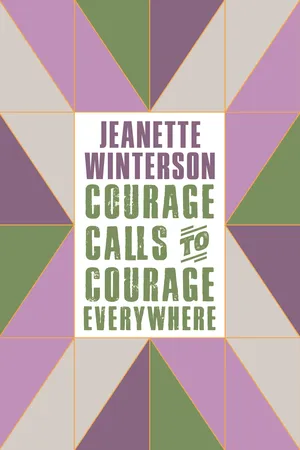![]()
In 1908 the Women’s Social and Political Union marketed a board game called Suffragetto.
Twenty-one green pieces – the militant suffragettes – had to break through police lines and enter the House of Commons. The twenty-one black pieces were the manly constables paid to stop them. As a twist, the burly black police pieces had to be prevented by the girls in green from storming the Albert Hall and breaking up a Suffragette rally.
Who says feminists don’t have a sense of humour?
In 1908, in the UK, women seemed as far away as ever from winning the right to vote. Ten years later, victory was theirs.
If the Suffragettes could time-travel, and be with us now, they would be astonished at how much has changed for women in just one hundred years.
Women are lawyers, doctors, scientists, journalists, artists, economists and entrepreneurs.
The police pieces in our board game of Suffragetto were all male because women couldn’t join the force a hundred years ago. Now, in 2018, Cressida Dick has the top job as the first female Commissioner of the Metropolitan Police.
A hundred years ago there were no women MPs. Now there are 208. And whatever your politics, wince or cheer, the UK is counting its second female Prime Minister.
In Scotland, Nicola Sturgeon is First Minister.
When I was writing this essay as a lecture for TV, I was thinking of calling it Women’s Equality: The Horrible History – but ‘history’ implies the past, and suggests that the work is done, at least in the Western world.
But a woman’s work is never done. So before we look at some of the challenges women still face, and before we risk a little futurology, let’s time-travel back to 1918, the reason for mass celebration this year; the first Representation of the People Act to include women.
The Act gave the vote to all men over twenty-one, and to some women aged thirty and above.
The reason for the age discrepancy?
So many men had been slaughtered during the First World War that to enfranchise women on the same terms as men would have given women the numerical majority. That was too frightening to contemplate – so women had to wait another ten years, until 1928, for full equality at the ballot box.
Even then, the Daily Mail called it ‘The Flapper Vote’ and questioned the sanity of giving ‘girls of twenty-one’ a say in the running of the State. But those girls of twenty-one were often women who had been working full-time since they were fourteen years old.
Votes for Women wasn’t only a middle-class movement, any more than the campaign #MeToo is a yacht-load of celebrities. Then, as now, women from all walks of life came together to fight injustice and inequality, at home, in the workplace, at the ballot box.
The bravest were the poorest; in London, activists included working women from the factories that made matches or tinned food. And across the country, on their half-day off, servants who could lose their jobs if found out crowded into the Suffragette rallies.
In Lancashire, cotton workers slogging twelve hours a day in the mills rallied to the Pankhursts’ northern powerhouse that started in Manchester: the Women’s Social and Political Union.
Manchester has never been a sit-down-and-shut-up kind of city. It was the birthplace of the Industrial Revolution – home of the Trades Union Movement. Marx and Engels walking the blackened, deafening streets, and asking if human beings who were clever enough to invent the vast machinery of industrialisation couldn’t invent a fairer, more equitable distribution of wealth?
And what about a fairer, more equitable distribution of power?
Working men had few enough rights, but they were, in law, persons in their own right. Women were not.Women, legally, were grouped with children and the insane.
Votes for Women was as much about changing the law in regard to the status of women as it was about equality at the ballot box.
In Manchester, working women, more used to the rough and tumble of life than their middle-class sisters, weren’t afraid of the Pankhursts’ call to go militant.
I was born in Manchester and a hundred years ago I’d have been clattering in my clogs down to the mill – so I love the story of mill-girl Annie Kenney. She isn’t too well known but she’s a heroine of mine.
Annie had started half-time in the cotton factory at ten years old – going full-time at thirteen. She’d lost a finger in the looms. She paid her way and she paid her taxes. Annie wanted the vote.
In 1905 at the Free Trade Hall in Manchester, Annie turned up to a political meeting held by the Liberals. The Suffragettes had written to the Liberals asking to send a deputation that day, but they were ignored.
Sir Edward Grey – later the Foreign Secretary, Lord Grey, who would lead Britain into the First World War – was speaking when Annie Kenney stood on her chair and shouted: ‘ Will the Liberal Government give the vote to women?’
Annie was tiny – but she knew how to yell. You try talking quietly above the racket of a hundred looms.
Annie was ignored so she yelled again – louder.
This time men dragged her off her chair, but Christabel Pankhurst, who was sitting nearby, unfurled a banner that said ‘Votes For Women!’
Plain-clothes policemen came to force both women to leave. They were dragged down the aisles, men jeering either side. Annie shouted back: ‘If I am forced to leave this hall I shall hold a meeting outside!’
Actually – as she was from Oldham – she said: ‘If ah’m forced t’leev this ’all ah shall ’old a meetin’ ahtside!’
Both women were arrested. Christabel Pankhurst got a week ...
